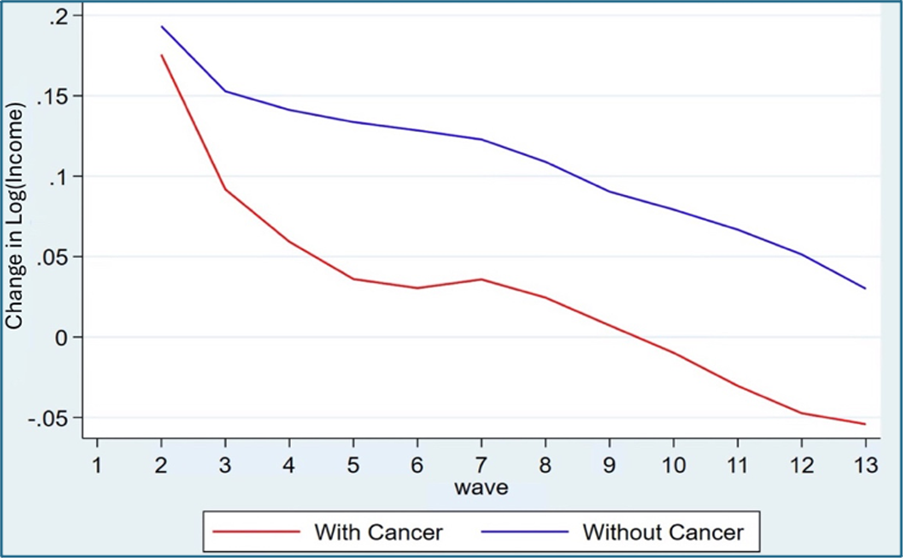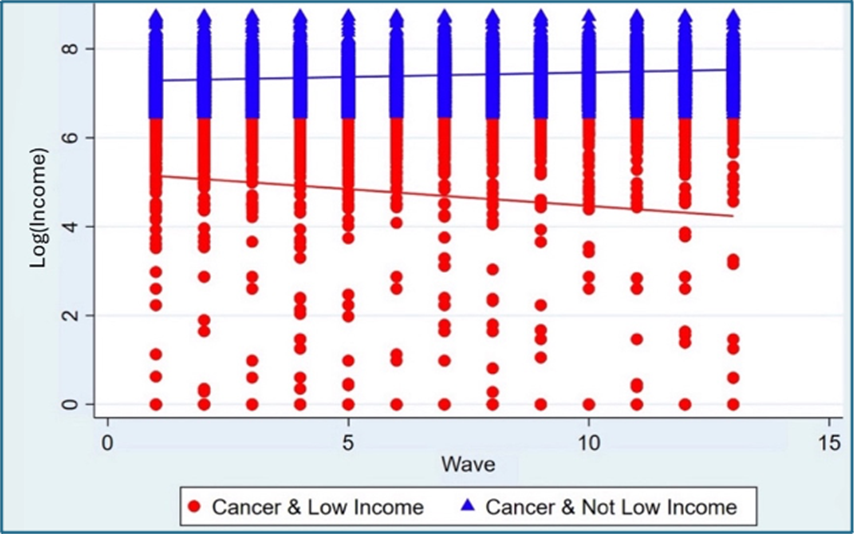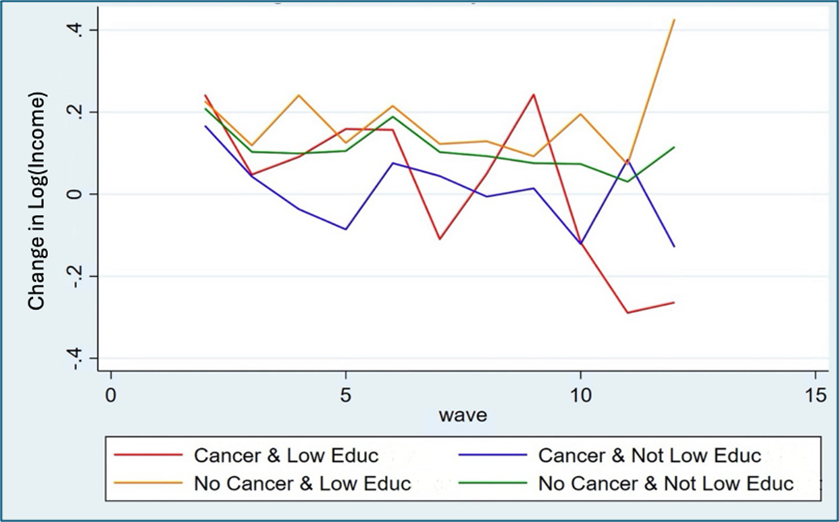 Lex Irish, winner of the UK Data Service’s dissertation award, discusses the findings of his health economics dissertation regarding the impact of cancer diagnosis on income levels in the UK.
Lex Irish, winner of the UK Data Service’s dissertation award, discusses the findings of his health economics dissertation regarding the impact of cancer diagnosis on income levels in the UK.
Cancer is one of society’s most widespread issues. According to the World Cancer Research Fund, “1 in 2 people in the UK will be diagnosed with cancer in their lifetime”.
Given this staggering statistic, understanding the broader, indirect impacts of the disease has become increasingly important in predicting the challenges people face in everyday life.
About me
My undergraduate economics dissertation was the first time I had complete freedom to explore a topic of my choice. While that freedom can be daunting, I knew I wanted to focus on something that meant a great deal to me personally. Writing about a topic I had no connection to felt like a missed opportunity, which is when it became clear that I wanted to study the economic impact of cancer.
When I was nine, my mother was diagnosed with cancer. Any family who has been through that experience knows how quickly life’s sense of normality can disappear. Back in 2013, the breadth of research in health economics was not what it is today, but even then I noticed how quickly our household income deteriorated.
My mother worked as a shop-floor assistant at Tesco, a demanding role that couldn’t be maintained with the physical and emotional toil of cancer treatment. Equally, my father worked as a taxi driver, which was lucky to be flexible enough to work around the requirements of helping my mother through her treatments, but also required a commitment of working hours that my father couldn’t give.
Even at that age, I saw that being diagnosed with cancer meant that my family had to stay adaptable to whatever was thrown at us, but it also led to a stark deterioration in our household’s income level.
Although financial support for families affected by cancer has improved since then, I found surprisingly little research that focused directly on how cancer affects income levels in the UK. That question became the driving force of my dissertation: what exactly is the impact of a cancer diagnosis on income levels, and what can we do about it? This led to my final title:
“The Cost of Survival: An Empirical Study into the Impact of Cancer Diagnosis on Income Levels in the UK.”
The research
Exploring an under-researched area was challenging, but I was fortunate to build on existing studies of other health shocks. Many of these used Understanding Society – the UK Household Longitudinal Survey (UKHLS), which follows over 100,000 individuals across 13 years and includes variables on income, health, and lifestyle factors.
Despite some limitations, such as missing cancer data in early waves and a lack of detail on cancer type or severity, it offered a solid foundation for a regression-based study across a large and diverse population.
The findings were startling, but coming from my own personal experience, unsurprising. The results of my report indicated that cancer incidence leads to a significant reduction in income, with disproportionately severe effects on financially vulnerable groups.
While the baseline model indicates a 17.4% reduction in average incomes, the interaction models demonstrate even greater financial loss. Amongst the low-income group, a 42.9% reduction in income was found, with a similarly high-income reduction of 32.9% among the low-education group.
Figure 1 – Change in income across waves by cancer status
Figure 1 illustrates average changes in income for individuals with and without cancer across UKHLS waves (2009–2022).
While both groups show slower income growth over time, the decline is far steeper among those diagnosed with cancer. This highlights the long-term economic consequences of the disease, from reduced career progression to limited capacity for full-time work due to ongoing health issues.
Figures 2 and 3 break these dynamics down further by income and education.
Figure 2 – Income trends by cancer & low-income status
In Figure 2, the income of higher-earning individuals with cancer remains relatively stable across waves, while the low-income cancer group shows a sharp and sustained decline after diagnosis. This suggests that financial stability can act as a buffer, helping higher-income individuals retain employment and income during treatment.
Figure 3 – Income changes across waves by cancer status & educational level
Figure 3 separates individuals by both education and cancer status. Although all groups experience fluctuations in income, those with both low education and cancer see the most instability. Their incomes fluctuate significantly across waves, suggesting higher levels of job insecurity and inconsistent earnings.
Final reflections
Cancer will always bring sudden and uneven financial strain, but as these findings show, those from low-income or low-education backgrounds face the harshest consequences.
The most rewarding part of this research has been proving, with data, what many families already know: that cancer does not only attack the body, it also undermines financial stability.
Charities such as Mission Remission are doing crucial work in highlighting these realities and supporting survivors to rebuild their working lives. The impact of cancer on my own family shaped who I am, and I hope that with continued research and awareness, future families will have the financial and emotional support they need to fight and to survive cancer.
Entering the UK Data Service Dissertation Award 2024-25 allowed my research to continue beyond submission. Being recognised by the competition for such a personal topic was the highlight of my experience studying health economics. I would encourage anyone who feels passionately that their research is worth sharing to apply – with Understanding Society offering such an extensive dataset, there is still so much to be discovered.
I would also like to thank Professor Sofianos Andis on his supervision during my writing of my Undergraduate dissertation.
About the author
Lex Irish is an MSc Management student at Imperial College London.
He has a keen interest in health economics, data analysis, and business management studies. Lex was awarded the UK Data Service Dissertation Award 2025 for his economics dissertation regarding the impact of cancer diagnosis on income levels in the UK.
Other stories you’ll find interesting
Comment or question about this blog post?
Please email us!



